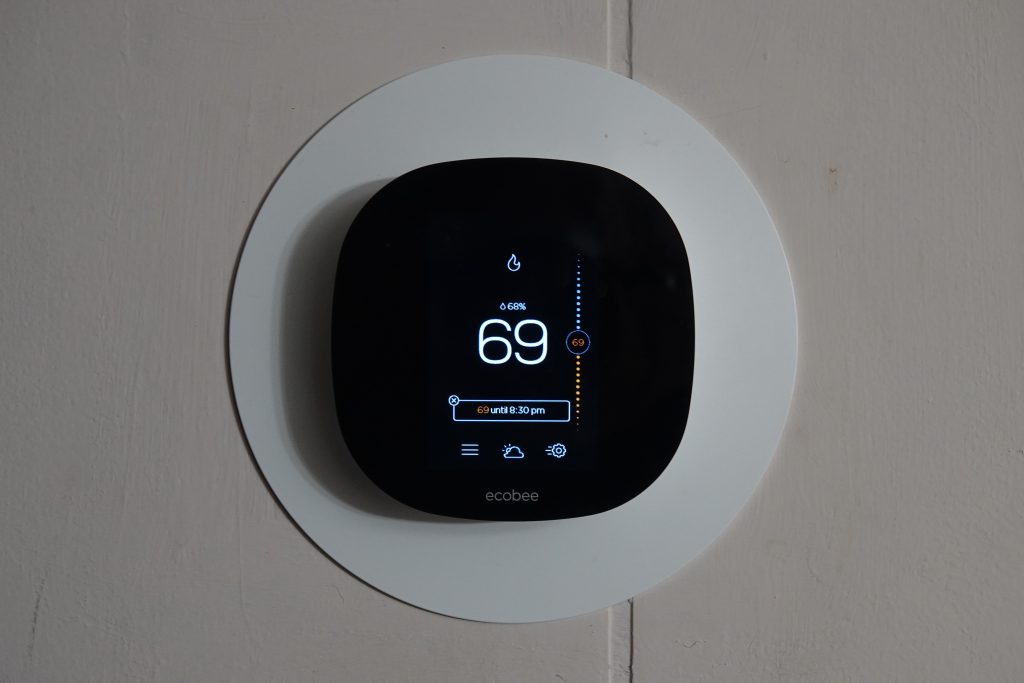If you are looking at installing a new furnace and wondering whether you should go with a gas furnace vs electric furnace, you’ll want to look at the pros and cons of each. The best way to do this is to consider the differences in installation, cost of maintenance, and energy efficiency of each.
Gas vs Electric Furnace – The Mechanics
The most obvious difference when discussing gas vs electric furnaces is the source of fuel but there is far more to the way they operate than this.
Gas furnaces utilize combustion to create heat. The essential components of a gas furnace are the gas line that leads to the appliance, the gas valve that controls the flow of fuel, an ignition system, and various components that facilitate the creation and distribution of heating.
One such component is the heat exchanger which permits the furnace to extract the heat safely to provide heat to your home. Some gas furnaces may even have dual heat exchangers, which adds the capability of generating more heat without an increase in fuel byproducts.
An electric furnace contains an air handler with heating coils added. It may serve as auxiliary heat while the real heating workhorse is an electric heat pump. When heating coils heat up, air blows across them, sending warmer air outward to heat your house.
When discussing furnaces, gas, or electric, that is pretty much where the differences end. Other than these core components, both types of furnaces have many similar gauges and valves that operate the unit or exist as safety measures to prevent overheating or severe malfunction.
Gas vs Electric – Maintenance
Whether you have a gas or electric furnace, you will want to have routine maintenance performed annually. Only the nature of the maintenance performed will be different. A gas furnace will require inspection of the flame sensor, igniter, burners, and pilot light. The heat exchanger must be examined for any leaks that might allow deadly gases to escape into your home.
A heat pump is utilized in both the heating and cooling process employed by your HVAC system, so it is best to have it maintained twice a year rather than just once. Each service should be scheduled, ideally, shortly before you begin to use the system for the first time each year. Most maintenance is performed in the spring and fall before the heavy use that follows in summer and winter.
Issues such as leaking refrigerant and dirty condenser coils will not only diminish the energy efficiency of your heat pump but can cause much more serious operational problems.
Gas vs Electric – Costs
In general, gas furnaces are more costly than electric furnaces regarding purchasing and installation prices. Depending on the model and size you need for your home, this price difference can often be nominal. The real difference in costs comes from how much each system costs to operate. Typically, gas furnaces are far cheaper to use than electric furnaces due to the differences in the cost of gas and electricity.
Gas vs Electric – Pros and Cons
Each type of furnace has its own pros and cons. Some of them have already been covered in the previous paragraphs but there are others. Let’s take a look at some of them.
Electric Furnaces
Pros
- If you have a home that uses solar panels to generate electricity, electric furnaces can provide you with a warm home at almost no costs
- A high-efficiency heat pump will provide reliable heating to keep your home comfortable even in freezing weather
Cons
- Small or midsize heat pumps may struggle to keep up with the heat demand during freezing temperatures, forcing your electric auxiliary heat to kick in more often, using additional energy
- Electricity is typically more expensive than natural gas, making the electric furnace more expensive to operate
Gas Furnaces
Pros
- Natural gas is normally inexpensive, keeping the energy cost to operate it low
- A high-efficiency gas furnace has a lower environmental impact from operation
Cons
- Service calls can be more expensive due to the price of parts and the expertise required to maintain and repair the more intricate system
- Requires access to natural gas lines which may not be available in your area
Which System Is the Better Choice?
There is no simple answer to this question. The decision as to whether you should purchase a gas or electric furnace will depend on many factors specific to your situation. If you are upgrading, you may want to go with whatever system you already have in place.
If you are in a new house, you may be asking the question: “Do I have a gas or electric furnace?” The answer to this question can be determined by simply looking at your furnace while it is in operation. A gas furnace has a small window and you will be able to see the small blue flame of the pilot light through it. Electric furnaces have no such window.
If you are looking at a new house build and trying to choose, you should look at the cost of a new system, the cost of energy to operate it, and whether you have access to natural gas lines. You may also consider a propane-fueled furnace with a standalone tank in the absence of natural gas lines. Ask for quotes for any systems you want to consider and do some research based on the energy efficiency ratings of those you have available to you to determine approximate operating costs.
Endnote
The most important consideration in choosing between gas and electric furnaces is choosing the one that will keep you comfortable, happy and meet your budget needs. The good thing is that it is not a choice you need to make alone. Whether you are replacing your existing furnace or preparing for a new installation, a knowledgeable professional from AHWA can help you determine your best options and answer any questions you have about the particulars of any system you want to consider.
[related_posts_by_tax posts_per_page="3" format="thumbnails" image_size="medium"]









